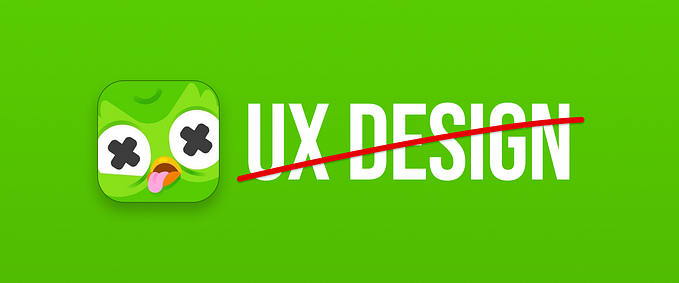
In the dynamic world of live events, the resale of tickets plays a crucial role in the overall ecosystem. Often misunderstood and sometimes controversial, this practice can significantly benefit event organizers in many ways. In this blog post, we will delve into the multifaceted advantages of ticket reselling for event organizers, addressing common queries and exploring key aspects related to the resale of tickets. Our discussion will incorporate keywords like “reselling concert tickets,” “sell my tickets,” “how to resell tickets,” and many others, providing a comprehensive understanding of this complex subject.
What is Ticket Reselling?
Ticket reselling, also known as ticket resale, involves selling event tickets originally purchased from authorized sellers. This can happen through various channels, including ticket resale sites, online marketplaces, and social media platforms. Resale tickets are often sold by individuals who cannot attend the event or by professional ticket resellers aiming to make a profit.
The Evolution of Ticket Reselling
Historically, ticket reselling was associated with ticket scalping sites where sellers would inflate prices excessively. However, with the advent of digital platforms and stringent regulations, the practice has become more regulated and transparent. Online event ticketing platforms have made it easier for both buyers and sellers to engage in ticket reselling safely and legally.
Benefits of Ticket Reselling for Event Organizers
1. Maximizing Revenue
One of the primary benefits of ticket reselling for event organizers is the potential to maximize revenue. When tickets are resold, especially through authorized platforms, event organizers can earn additional revenue through service fees and commissions. This additional income stream can be significant, particularly for high-demand events like concerts and sports games.
2. Enhanced Market Reach
Ticket reselling helps event organizers reach a broader audience. When tickets are made available on multiple resale platforms, more potential attendees become aware of the event. This increased visibility can lead to higher attendance rates and more successful events.
3. Improved Ticket Distribution
Reselling tickets can lead to a more efficient distribution of tickets. Initially, tickets may be sold to fans who later realize they cannot attend the event. Allowing these tickets to be resold ensures that they are redistributed to individuals who are genuinely interested in attending, thereby optimizing seat occupancy and overall event experience.
4. Mitigating No-Show Rates
Events often suffer from no-shows, which can be detrimental to the atmosphere and financial success of the event. By facilitating ticket reselling, event organizers can reduce the number of empty seats. Resale tickets provide an opportunity for late buyers to fill those spots, ensuring a fuller and more engaging event environment.
5. Market Insights and Data Collection
Ticket reselling can provide valuable insights into market demand and pricing trends. By analyzing resale activity, event organizers can better understand the event’s popularity, optimal ticket pricing strategies, and customer preferences. These statistics can inform future event planning and marketing strategies.
How to Facilitate Ticket Reselling?
Partnering with Resale Platforms
Event organizers can partner with reputable ticket resale sites to facilitate the process. These platforms offer secure and user-friendly interfaces for both sellers and buyers. Some of the best places to resell tickets online include StubHub, SeatGeek, and many others. These platforms ensure that reselling tickets is streamlined and transparent, benefiting both organizers and attendees.
Implementing Ticket Resell Policies
To ensure a fair and effective ticket resell system, event organizers should establish clear policies regarding ticket reselling. This includes guidelines on pricing, resale timelines, and acceptable resale platforms. Clear policies help maintain the integrity of the event and protect both the organizers and attendees from fraudulent activities.
Utilizing Technology
Advanced event ticketing platforms such as ticketing apps now offer integrated solutions for ticket reselling. These platforms allow organizers to control and monitor the resale process, ensuring compliance with regulations and maximizing revenue. Features such as secure ticket transfers, dynamic pricing, and real-time tracking enhance the overall efficiency and transparency of ticket reselling.
Legal Considerations for Ticket Resell
Ticket Reselling Laws
Understanding ticket reselling laws is crucial for event organizers. Regulations vary by country and even by state, and it is essential to comply with local laws to avoid legal issues. For instance, some regions have strict laws against ticket scalping sites and impose limitations on resale pricing. Organizers must stay informed about these regulations and ensure their resale practices are lawful.
Is Buying and Reselling Tickets Illegal?
While ticket reselling, itself is not illegal in many places, certain practices associated with it can be. For example, using automated bots to purchase large quantities of tickets for resale is prohibited in many areas. Organizers should be aware of such practices and take measures to prevent them, thereby maintaining a fair and legal resale market.
Protecting Against Fraud
Fraud is a significant concern in the ticket reselling industry. Event organizers can protect themselves and their customers by partnering with reputable resale platforms that offer buyer guarantees and secure transactions. Implementing advanced security measures, such as blockchain technology for ticket verification, can further reduce the risk of fraud.
Best Practices for Ticket Reselling

Setting Fair Resale Prices
To ensure a positive experience for all parties involved, event organizers should encourage fair pricing on resale tickets. Excessive markups can lead to customer dissatisfaction and damage the event’s reputation. Implementing dynamic pricing models and setting maximum resale price limits can help maintain fairness and affordability.
Providing a Seamless User Experience
Seamless user experience is essential for successful ticket reselling. This includes easy access to resale platforms, clear instructions on reselling tickets, and prompt customer support. A positive user experience encourages more people to participate in the resale market, benefiting the event organizer.
Promoting Resale Opportunities
Event organizers should actively promote ticket resell opportunities to potential buyers. This can be done through social media, email marketing, and the event’s official website. Highlighting the availability of resale tickets can attract last-minute buyers and ensure that the event reaches maximum capacity.
Common Questions About Ticket Reselling
What are Resale Tickets?
Resale tickets are sold by someone other than the original seller, typically on secondary markets. Depending on demand and other factors, these tickets can be sold at face value, above, or below the original purchase price.
How to Resell Tickets Online?
To resell tickets online, sellers can use various platforms such as StubHub, SeatGeek, or Ticketmaster’s resale marketplace. The process involves listing the ticket, setting a price, and completing the transaction through the platform’s secure system.
Best Place to Resell Tickets?
The best place to resell tickets depends on the event and the market demand. Popular platforms like StubHub and SeatGeek are widely used for concert and sports tickets. For niche events, dedicated community forums or event-specific resale sites might be more effective.
Is Reselling Tickets Profitable?
Reselling tickets can be profitable, especially for high-demand events. However, profitability depends on factors such as the primary purchase price, demand, and resale platform fees. It is essential to research and understand the market before engaging in ticket reselling for profit.
The Future of Ticket Reselling
Integration with Event Ticketing Platforms
The integration of ticket reselling with primary event ticketing platforms can streamline the resale process and provide a unified experience for users. event ticketing platform is one of the useful tools to help event organizers to resell event tickets with seamless integration and ticket sell analysis reporting.
Profitability of Ticket Reselling
Event organizers need to understand “Is reselling tickets profitable?” for their event which is crucial. By using data analytics and market trends, organizers can make informed decisions that maximize profitability.
Sustainable Ticketing Practices
As the industry evolves, adopting sustainable ticketing practices that prioritize fairness and accessibility will be key. This includes setting ethical resale policies and promoting responsible ticket reselling.
Conclusion
Ticket reselling managed effectively, can offer substantial benefits to event organizers. The advantages are numerous, from maximizing revenue and improving ticket distribution to providing valuable market insights providing valuable market insights, the advantages are numerous. By understanding the legal landscape, partnering with reputable resale platforms, and implementing best practices, event organizers can leverage ticket reselling to enhance their events and ensure a positive experience for all attendees. Whether you are looking to “sell my tickets” or exploring “how to resell tickets,” embracing the dynamics of ticket reselling can lead to successful and profitable events.










